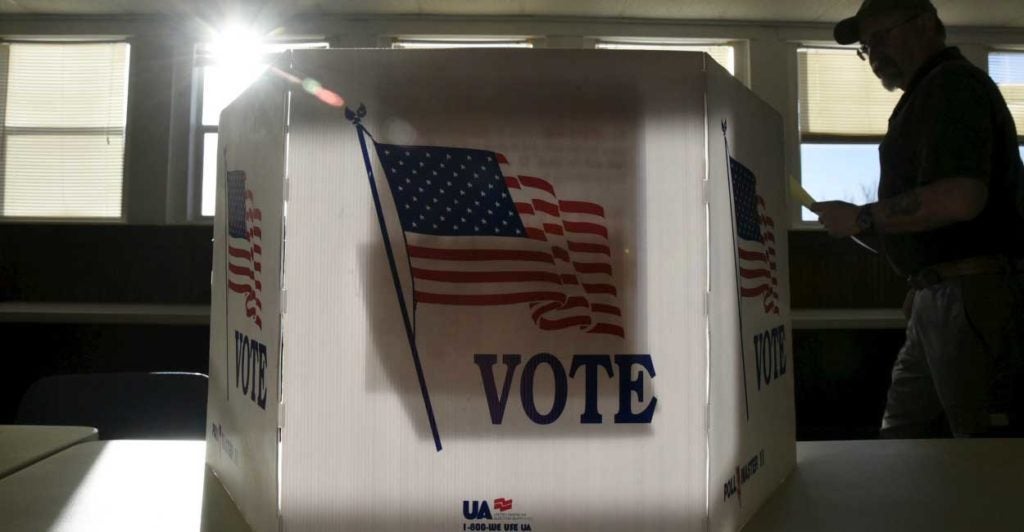It’s only a day before the election. Millions of Americans are putting the stamps on their absentee ballots; millions more are preparing to take their (highly discouraged and possibly illegal) ballot box selfies. The rest of us will don “I voted” stickers and settle in for what promises to be a long night of breaking news in elections across the country.
But some can’t take the suspense and would prefer to have a “sure thing.” Elections are the path to power in our political system, and for these fraudsters, the will of the people is far too fickle a thing to rely upon when it comes to furthering their careers and their causes.
They would rather manipulate the results and steal elections than risk losing, and the poor state of electoral security in the United States all but ensures that, in many cases, they can get away with it.
Of course, many liberals will tell you otherwise. They insist—loudly and often—that voter fraud is a myth. They are flat wrong, as The Heritage Foundation’s voter fraud database proves. With this week’s new entries, we have cataloged nearly 450 instances (many involving multiple perpetrators) across 45 states where allegations of election fraud have been proven in courts of law and resulted in criminal convictions or overturned elections.
That number is startlingly high, but hardly reflective of the true scale of the problem. The fact is, few states have the tools in place to detect fraud, before or after it occurs, and few prosecutors have the time and resources to prioritize voting fraud prosecutions once an election is over.
Here are some of the new entries from our database:
- Todd Murray, a resident of Wisconsin, voted twice in the 2012 presidential election. Like many Americans on Election Day, Murray stopped at his assigned polling place to cast a ballot on his way home from work. There was just one problem: That very evening, he had already registered and voted in nearby New Berlin. At trial, Murray’s attorneys tried to blame his duplicate voting on anxiety and depression, and downplayed the significance of his actions in the context of the broader election. But Circuit Judge Joseph Donald had none of it, noting that double voting is “the most grave offense one can commit … under the election laws.” Murray was sentenced to 90 days’ incarceration and 18 months of probation.
- ACORN workers in Seattle committed what the secretary of state called “the worst case of voter registration fraud in the history of the state” up to that time. To avoid being shut down by the national office for not meeting voter registration quotas, Clifton Mitchell and his Seattle-area team began using fake names and personal information to register wholly fictitious voters. In total, Mitchell and his accomplices submitted 1,762 fraudulent voter registration forms. Mitchell served three months in jail; four of his accomplices joined him. ACORN was fined and ordered to improve its supervision of its workers. This was in 2007; in 2010, the highly controversial group folded altogether after revelations of misconduct in multiple states.
- A 2001 election in Compton, California, turned into a multiyear legal drama after rivals for the mayor’s office accused one another of fraud and took their fight to court. Incumbent Omar Bradley was defeated by Eric Perrodin, but, after Bradley filed a lawsuit challenging the result, it was determined that Perrodin’s name had been deliberately placed first on the ballot by the city clerk (names are supposed to be randomly assigned). The judge determined that Perrodin had improperly benefited from a “primacy effect,” and overturned the election, restoring Bradley to office. In the course of the trial, it was also revealed that Leslie Irving, an ally of Perrodin’s and the victor herself in a race for an open City Council seat, had helped noncitizens to register and vote in the election. The judge removed Irving from office and banned her for life from ever holding elected office in California. The judge declared Irving’s opponent to be the victor and installed her on the City Council. An appellate court ruled that although the city clerk had acted improperly, this was insufficient evidence to overturn the result of the mayor’s race. The appellate court did agree, though, that Irving had committed fraud and should be barred from running for office; however, the court held that the proper remedy should have been to hold a new election rather than automatically declaring her opponent to be the victor.
Ultimately, even a single ballot cast improperly—by a noncitizen, a disenfranchised felon, or a duplicate vote—nullifies a legitimately cast ballot. That false vote need not sway the election to cause harm to the political process, nor should voter fraud have to rise to the level of stealing a presidential election to be taken seriously.
In light of the hundreds of cases documented in the Heritage database, it should be clear to any reasonable person that voter fraud exists and that it can sway the results of elections and cast doubt on the validity of the entire process.
Heritage has laid out a series of policy recommendations that states should adopt to secure the ballot box by preventing and deterring fraud, all while affirming every citizen’s right to vote.
This election season, let’s make electoral integrity the one truly nonpartisan issue.
